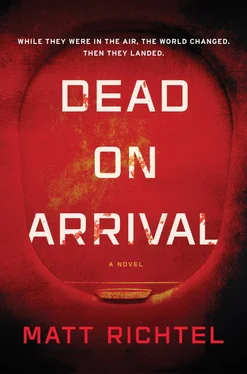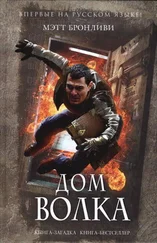“Nice outfit,” was Lyle’s single rejoinder in the morning, looking at her skirt next to the bed.
“I have a right to defend myself,” Melanie responded, the sympathy squeezed out of her voice.
“Against what?”
“Invasion of the body snatchers. I want to help you. I’m here to help you. But I have a life and I won’t let you take my hand and yank me over a cliff.”
In the months that followed, she’d vacillate between trying to reach him and making sure she continued to exist. She indulged an entrepreneurial bug and signed up for an evening class at Berkeley’s Haas School of Business. Things at home didn’t feel hostile, more like that proverbial frog in simmering water that would eventually boil.
Lyle looked at Melanie over his empty shot glass.
“So why are you here, Mel?”
“Because I’m looking for you.”
It was a striking thing to say, especially the plaintive way she said it. He turned to her, even though doing so meant he was abandoning his stubborn self-imprisonment.
“I can’t find you in our home, our bed, not in our conversations, not at the lab,” Melanie said. “I’m going to see if I can find you… I don’t know… in Africa, in a tent, surrounded by…” She had tears in her eyes. Lyle cleared his throat. She was softening him and he was fighting it.
“By… all that sickness.” She chose the word over disease . “You shine there, you are magnificent, when you are called upon. I don’t think you can hide from me there.”
She put her hand on his knee. Lyle felt warmth course up his thigh. He looked for the bartender, a lifeline. Melanie squeezed his leg. The bartender appeared with two heaping plates of French dip and fries.
He wanted to beg her to go home. She shouldn’t be going, not now, and not on this one. He looked at her, desperate to say something, and, yes, God, she was beautiful, particularly with this pink hue to her skin, and even with a slight puffiness around her blue eyes. Lyle tried to get words out— don’t go —and instead took his last gulp of booze and felt defeat.
Fourteen hours later, they landed in Amsterdam for a brief layover before flying to Arusha. Before touchdown, Lyle had awakened with his head on Melanie’s shoulder and seemed to have forgotten whatever was fueling his mood. Until he got his bearings. Then, fully awake, he withdrew from Melanie, smiled thinly, asked Michael to hand him the briefing folder. He looked at the pictures and the medical reports. He immediately homed in on the anomaly, the thing he’d noticed when Michael had first told him what was happening near the border. This wasn’t ordinary, this situation. He pushed his reading glasses back on his nose and let himself dive into the folder.
And Melanie let him get away with it even though she sensed he was retreating into the work as much as embracing it. This was, she thought, a legitimate excuse, to let things settle down. Maybe she’d discover him again.
Not likely. Not with the secret he was keeping from her.
“Are those two giraffes…” Melanie’s voice trailed off.
“It’s a wonder the first time you see it,” Michael said. “Now you understand men.”
They traveled south through the plains in a yellow Land Cruiser, open top, the size of a small bus. It was an angular thing, exposed metal bars, a safari vehicle but without any of the fancy signs or branding of a commercial company. Government issue. To the left, under an acacia tree, two giraffes held the bizarre pose. One had mounted the other.
“Men? They’re not mating,” Melanie said.
“Nope. Guess again.”
She shrugged.
“The one on top just beat the other in a fight. His reward is this expression of dominance.”
“Prison rules,” Melanie said. “You see that, Peño?”
He sat in a seat across the aisle, reading from a file. He glanced at Melanie. “I think you should go back to the hotel.”
She looked away.
“Dr. Martin. Tsetse,” Michael said. Lyle didn’t even notice the fly on his wide-brim beige hat gunning ultimately for his cheek. Michael stood and swatted the air, sending the fly on its way.
“Lost when he’s working,” Melanie said. But she was making excuses—for him, and for herself. They’d had a brief layover in the Arusha Hotel after that exquisite landing near Kilimanjaro. Lyle had sat on the bed, eyes half closed. By that point, Melanie had given up trying to coddle him into conversation. But at one point she came out of the bathroom determined to confront him, bring her nuclear weapon and clear the air. Couldn’t do it. She’d been having trouble sleeping and felt like she might be getting a cold.
The landscape was changing quickly. The dusty steppe took on high grass. Denser trees appeared. In the distance, it looked practically lush.
“We’re not that far from the Selous Reserve. It’s where we’ve set up the perimeter,” Michael said to Lyle. Now Lyle looked up. A man in green fatigues stood beside a yellow police barrier. It looked like he was completely in the middle of nowhere, an oasis amid the brown grass and a felled evergreen. Hardly. Everyone in the truck knew that he was the last stop before death. The truck pulled beside him and slowed. Michael waved.
“Jambo. This is the doctor,” he said. It was a formality. The man in fatigues was too young to have any say-so about anything. His mere presence intended as deterrence. Who would come out here anyway? “Have some more coffee,” Michael said to the soldier as they passed.
Ahead, a small rock formation that would qualify in these parts as a landmark. Melanie watched a lizard scatter at the base of the rocks.
“It’s going to sneak up on you on the other side,” Michael said. He was saying: Brace yourself .
Lyle looked at the late-afternoon sky, pinky blue, yellows bent through the prism of wispy clouds. He scanned the rocks. Muddy water pooled at the bottom right. Maybe someone had washed there. Or people had used it for a restroom. One of the problems he often saw was that sick people did what they had to do where they had to do it—like pissing and shitting—and disease fed on it.
They rounded the corner. A small village emerged, thatched huts bisected by a footworn orange-colored dust road, more like a path. They saw the man in the middle of it. He was on all fours, crawling their direction, trying to, breathing like a dog hit by a car. An aid worker or nurse in a white suit tried to help him by the arm.
“He’s the one I need to see,” Lyle said.
The stake in the far right corner of the medical tent had loosened. Other than that, the setup was reasonable, nothing profound, as might be expected. Six victims in beds, four along one wall, two along another, getting saline drip. Two empty beds betrayed the fate of their most recent inhabitants; sweat and bowel stains, the bodies’ last expressions. It irked Lyle that there still was insufficient manpower here six days after the first patient showed up.
Michael, an edge in his voice, said something in Swahili. A nurse who looked like a beekeeper in all his garb quickly cleaned up one of the empty beds by tossing the sheets and pillow into a plastic bag. A few minutes later, the moaning man Lyle had seen outside became the makeshift hospital’s latest inhabitant.
By then, Lyle had already scrubbed in a bowl of soapy water and gloved and put on a respirator. Melanie remained in the truck. She was a nurse by training, but the risks here outweighed any help she might offer, especially before Lyle got a grasp. Besides, he’d practically begged her to stay put. In the tent, he leaned down and felt the faint pulse of a woman of truly indeterminate age; he figured her between thirty-five and sixty. Disease and sun mottled her skin, bleached her night-dark pallor near pale, obscured the truths her face might tell.
Читать дальше












